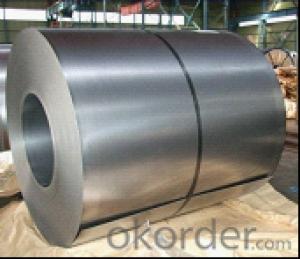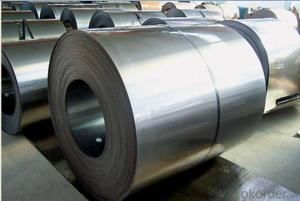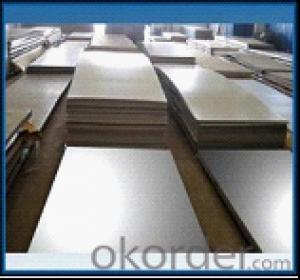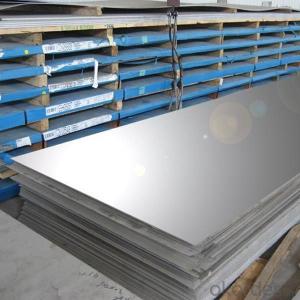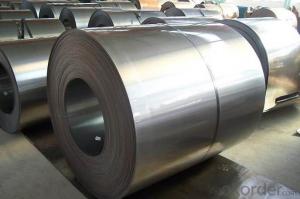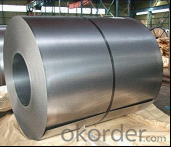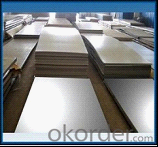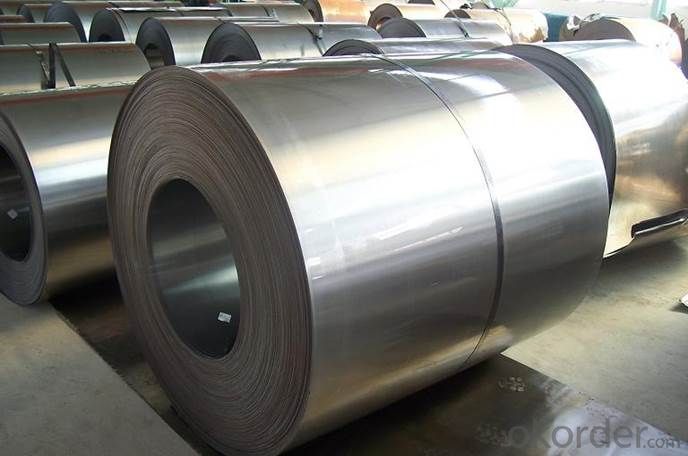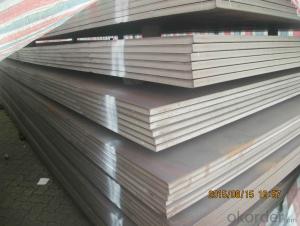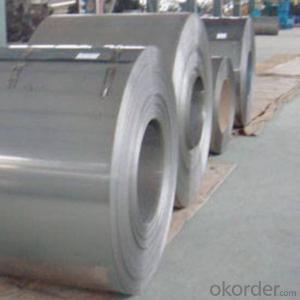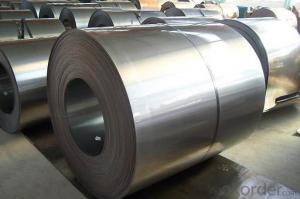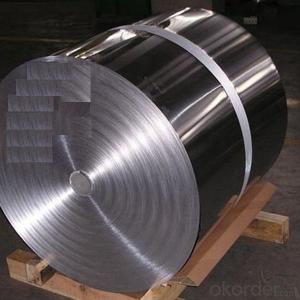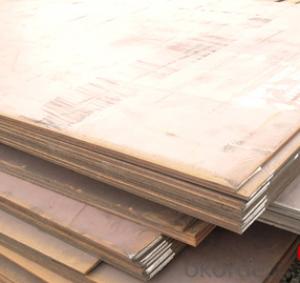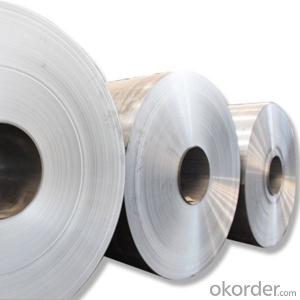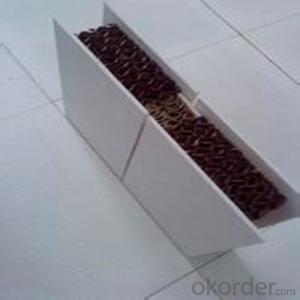Cold rolled steel from China, CNBM, fast delivery
- Loading Port:
- China main port
- Payment Terms:
- TT OR LC
- Min Order Qty:
- 1 m.t.
- Supply Capability:
- 100000 m.t./month
OKorder Service Pledge
OKorder Financial Service
You Might Also Like
Specification
Product Name | Cold Rolled Sheet Coil |
Material | SPCC/SPCD/SPCE/DC01/ST12/ ST14/SPCD/DC03/DC04 ect. |
Grade Standard | JIS G3302, EN10142, ASTM653, ASTM95 |
Thickness | 0.15-3.5mm |
Width | 600mm-1500mm |
Coil ID | 508-610mm |
Coil OD | max 1500mm |
Weight | 3-10 Tons |
Tolerance | Thickness tolerance:+/-0.02mm; Width tolerance:+/-5mm |
Surface | No-skin passed or Skin passed, Tensile leveled |
Surface Treatment | Chromate/Unchromate passivation, fingerprint resistant treatment, oiled/unoiled |
Annual Output | 350,000MT |
Application | Construction, hardware, home applicances, interior decoration |
General Application of Cold Rolled Steel Coil:
Classification | Designation | Characteristics | Main applications |
Commercial quality | SPCC SPCCT | Commercial quality suitable for bending fabrication and simple forming; this is the type in greatest demand. | Refrigerators, cabinets, power distribution baords and drums. |
Drawing quality | SPCD | Drawing quality second only to that of SPCEN. Excellent uniformity. | Automobile floor and roof panels. |
Deep-drawing quality | SPCE SPCF | Deep-drawing quality.With metallurgically controlled grain size, it retains its beautiful finish even after being deep-drawn. | Automobile fenders and quarter panels |
Extra deep-drawing quality | SPCG | Extra-low-carbon steel sheets with highest workability | Automobile internal panels and deep-drawn parts |
- Q: Are steel sheets suitable for architectural applications?
- Yes, steel sheets are definitely suitable for architectural applications. They offer excellent strength, durability, and versatility, making them ideal for a wide range of architectural projects. Steel sheets can be used for roofing, cladding, flooring, and structural elements, providing both aesthetic appeal and structural integrity. Additionally, steel sheets can be easily shaped, cut, and welded to create intricate and complex architectural designs.
- Q: How is the normalized steel plate produced?
- Normalizing, also known as normalizing, is to heat the workpiece between 727 and 912 degrees Celsius. 40~60min, after a period of heat preservation, is removed from the furnace and cooled by air or by spray, spray, or blow cooling. Its purpose is to make grain refinement and carbide distribution homogenization, to remove the internal stress of materials.
- Q: Can steel sheets be used for agricultural applications?
- Yes, steel sheets can be used for agricultural applications. Steel is a versatile material that offers strength, durability, and resistance to corrosion, making it suitable for various agricultural purposes such as building structures, fencing, roofing, and equipment.
- Q: Can the steel sheets be easily folded or creased?
- It is not possible to easily fold or crease steel sheets. Steel, being a robust and inflexible material, demands considerable force for bending or creasing. Its durability and resistance to deformation make it a popular choice in construction and manufacturing. Nevertheless, if the steel sheets are sufficiently thin, they might have enough malleability to be bent or creased by utilizing suitable tools and techniques.
- Q: What is the difference between a perforated and non-perforated steel sheet?
- The designs and functionalities of perforated and non-perforated steel sheets distinguish them from each other. Perforated steel sheets are characterized by evenly distributed small holes or perforations on their surfaces, which can vary in shape and size depending on specific application requirements. The main purpose of a perforated steel sheet is to enable the flow of air, light, sound, and liquids through the sheet while maintaining its structural integrity. This makes it highly suitable for applications where ventilation, filtration, or visibility is crucial. Industries such as architecture, automotive, manufacturing, and construction commonly utilize perforated steel sheets for purposes like acoustic panels, protective barriers, decorative elements, and filter screens. On the contrary, non-perforated steel sheets lack any holes or perforations on their surfaces. They are solid sheets of steel primarily used for applications where strength, durability, and resistance to impact or abrasion are significant factors. Structural engineering, machinery, shipbuilding, and heavy-duty equipment manufacturing often rely on non-perforated steel sheets as they provide a sturdy and dependable surface for load-bearing and other demanding applications. To summarize, the distinction between perforated and non-perforated steel sheets lies in their design and functionality. Perforated steel sheets possess small holes throughout their surfaces, allowing the passage of air, light, sound, and liquids. Non-perforated steel sheets, on the other hand, are solid sheets without any holes, providing strength and durability for heavy-duty applications.
- Q: Can steel sheets be painted?
- Yes, steel sheets can be painted. The surface of steel sheets can be prepared by cleaning, priming, and applying paint to achieve the desired color and finish.
- Q: What are steel sheets made of?
- Steel sheets are made of iron and carbon, along with other elements such as manganese, silicon, and sulfur.
- Q: Are steel sheets suitable for cold storage applications?
- Yes, steel sheets are suitable for cold storage applications. Steel is a durable and strong material that can withstand the low temperatures typically required for cold storage. It is resistant to corrosion and does not absorb moisture, making it ideal for keeping the cold air inside the storage area. Additionally, steel sheets can be easily cleaned and sanitized, which is important in maintaining the hygiene and safety of the stored items. Steel also provides excellent insulation properties, helping to maintain a consistent temperature within the cold storage facility. Furthermore, steel sheets can be customized and fabricated to meet the specific size and shape requirements of the cold storage application. Overall, steel sheets are a reliable and practical choice for cold storage applications.
- Q: Are steel sheets suitable for noise barriers or soundproofing?
- Yes, steel sheets can be suitable for noise barriers or soundproofing. Steel is a dense material that effectively blocks and absorbs sound waves, making it an effective choice for reducing noise transmission. Additionally, steel sheets can be designed to have different thicknesses and textures to further enhance their soundproofing capabilities.
- Q: Are steel sheets suitable for architectural cladding?
- Yes, steel sheets are suitable for architectural cladding. Steel is a durable and versatile material that offers a range of benefits for cladding applications. Its strength and rigidity make it capable of withstanding harsh weather conditions, including strong winds, heavy rain, and snow. This durability ensures that the cladding will last for many years without requiring frequent maintenance or replacement. In addition to its durability, steel sheets provide a sleek and modern aesthetic to buildings. They can be finished in various ways, including painting, powder coating, or applying a metallic finish, allowing for endless design possibilities. Steel cladding can be used to achieve a contemporary or industrial look, making it a popular choice for commercial and residential buildings alike. Steel sheets are also highly resistant to fire, pests, and rot, making them a safe and long-lasting choice for cladding. They are also relatively lightweight, which can help reduce construction costs and make installation easier. Furthermore, steel is an environmentally friendly material. It is recyclable, making it a sustainable choice for cladding. Steel cladding can also help improve energy efficiency by providing better insulation and reducing heat transfer, resulting in lower energy consumption for heating and cooling. Overall, steel sheets are a suitable option for architectural cladding due to their durability, aesthetic appeal, safety features, sustainability, and energy efficiency benefits.
Send your message to us
Cold rolled steel from China, CNBM, fast delivery
- Loading Port:
- China main port
- Payment Terms:
- TT OR LC
- Min Order Qty:
- 1 m.t.
- Supply Capability:
- 100000 m.t./month
OKorder Service Pledge
OKorder Financial Service
Similar products
Hot products
Hot Searches
Related keywords
